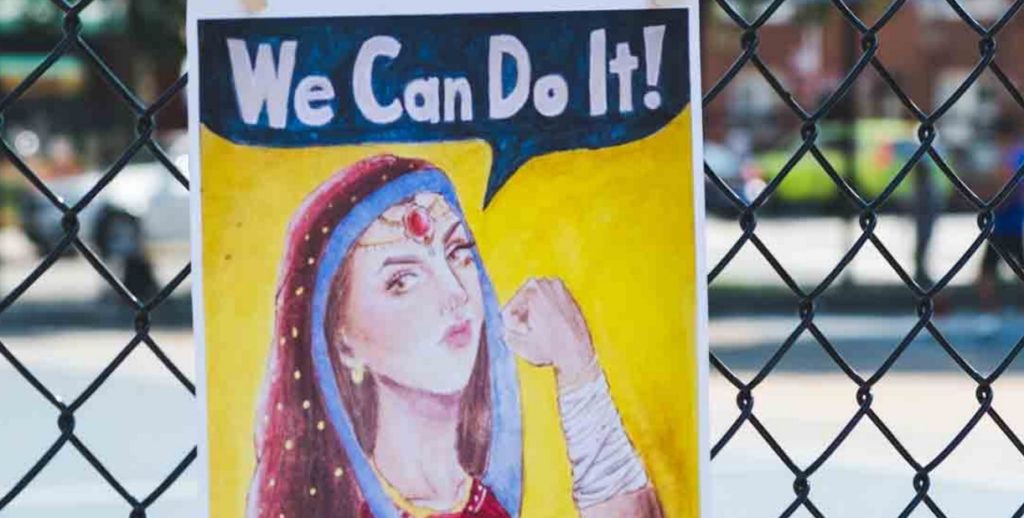From The Village Voice

by Aviva Stahl
On a recent Saturday afternoon, after the rainclouds had cleared, a group of young South Asian women gathered under a bright blue sky in Frank D. O’Connor Playground, across Broadway from NYC Health and Hospitals/Elmhurst in Elmhurst, Queens. One young woman climbed onto a fence to hang a banner reading, “Liberated Girls & Womxn’s Zone.” Across the playground, past a fountain, others pinned a clothesline hung with a series of vibrantly patterned cloths silk-screened with fiery feminist messages.
It was the closing event for this year’s cohort of Eckshate Gender Justice, a program run by the Jackson Heights–based group Desis Rising Up and Moving (DRUM), a membership-led organization composed of low-wage South Asian and Indo-Caribbean workers. (“Desis” refers to people in the South Asian diaspora, particularly those from Bangladesh, India, and Pakistan.) Every Friday from March to June, about twenty South Asian and Indo-Caribbean New Yorkers had gathered at the DRUM office on Roosevelt Avenue to meet other young women, educate themselves about sexism and the other forces that shape their lives, and start acquiring the skills to build a different world.
The event was organized by DRUM in collaboration with “Hate Free Zones Queens,” a coalition of groups that came together after Donald Trump’s election to build relationships between marginalized communities. Over the afternoon, about one hundred people amassed on the playground to drink chai, catch up, and silk-screen T-shirts, whose images — such as a fist inside a heart, captioned “I am this because I’m a woman” — drew questions from onlookers. Later, participants, who included women of all ages along with some men, split up into smaller groups to discuss this year’s theme: women’s labor.
Eckshate, which means “together” in Bangla and Urdu, was founded about two years ago by Jensine Raihan, a first-generation New Yorker of Bangladeshi-Bengali heritage who had joined DRUM several years prior. At age eight, Raihan was made homeless when her mother took her and her siblings and fled an abusive marriage. After about a year, the family secured public housing in Astoria, where they have been living ever since.






